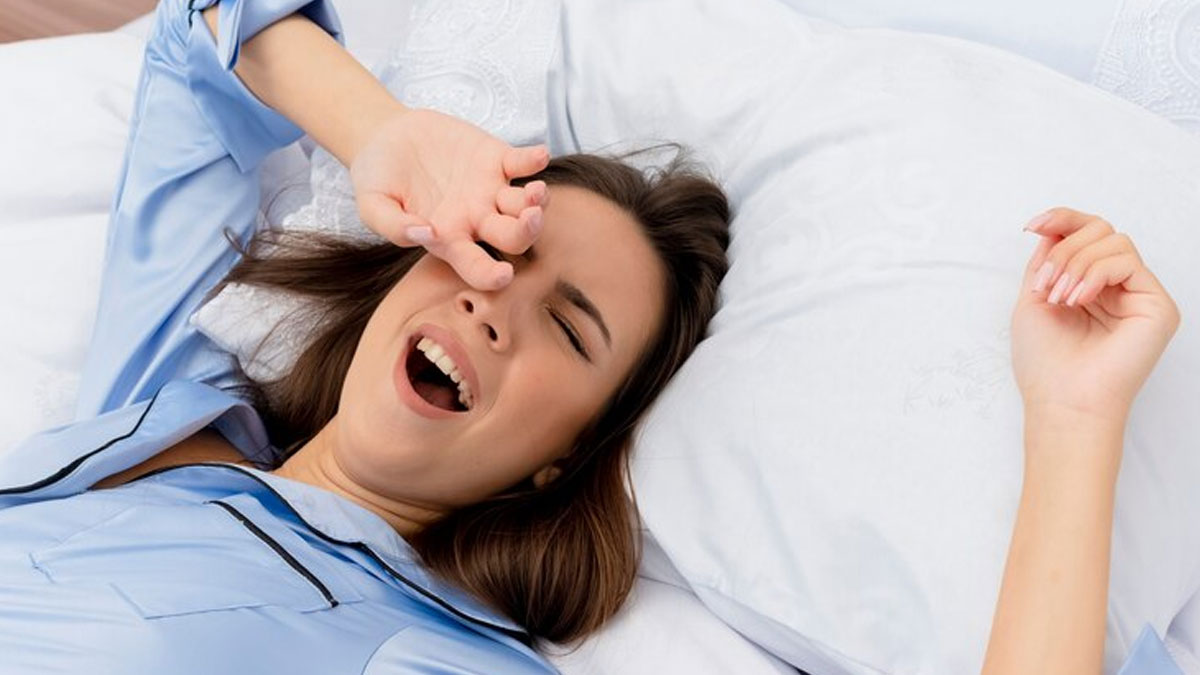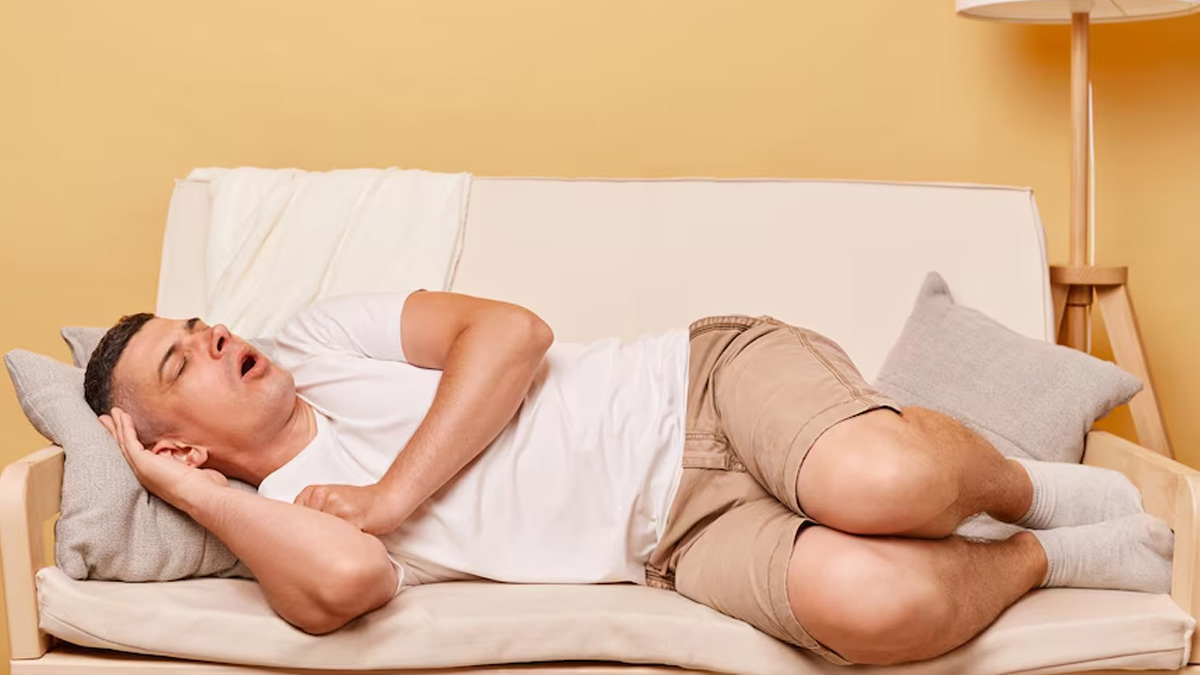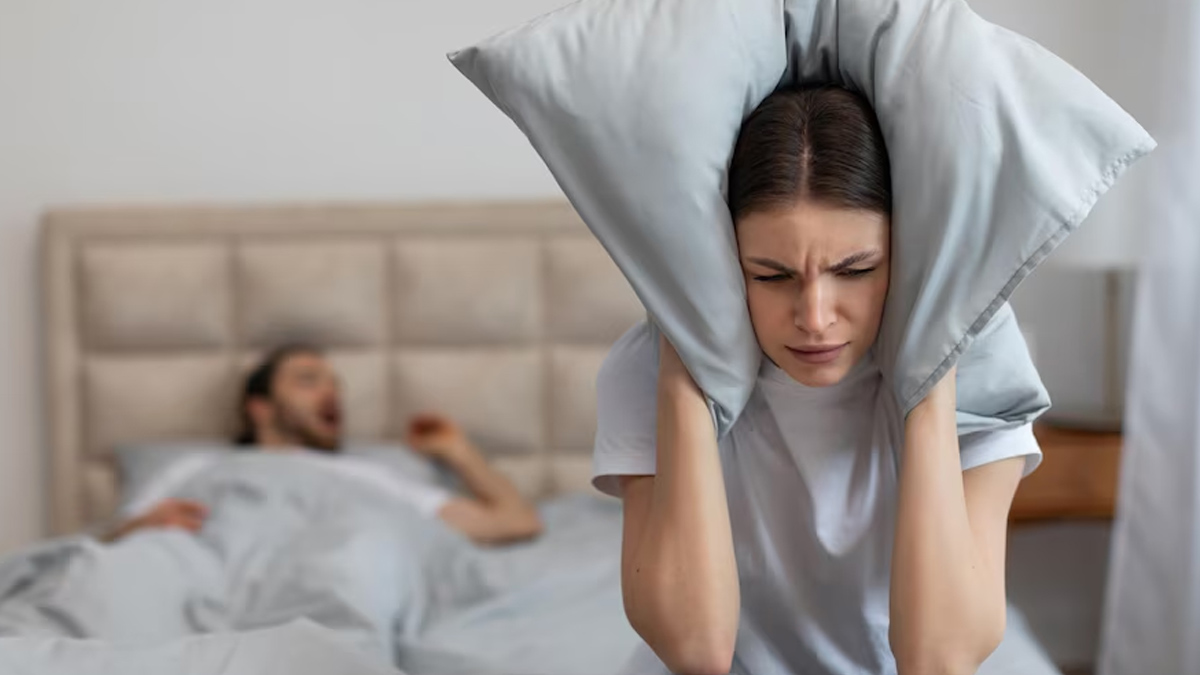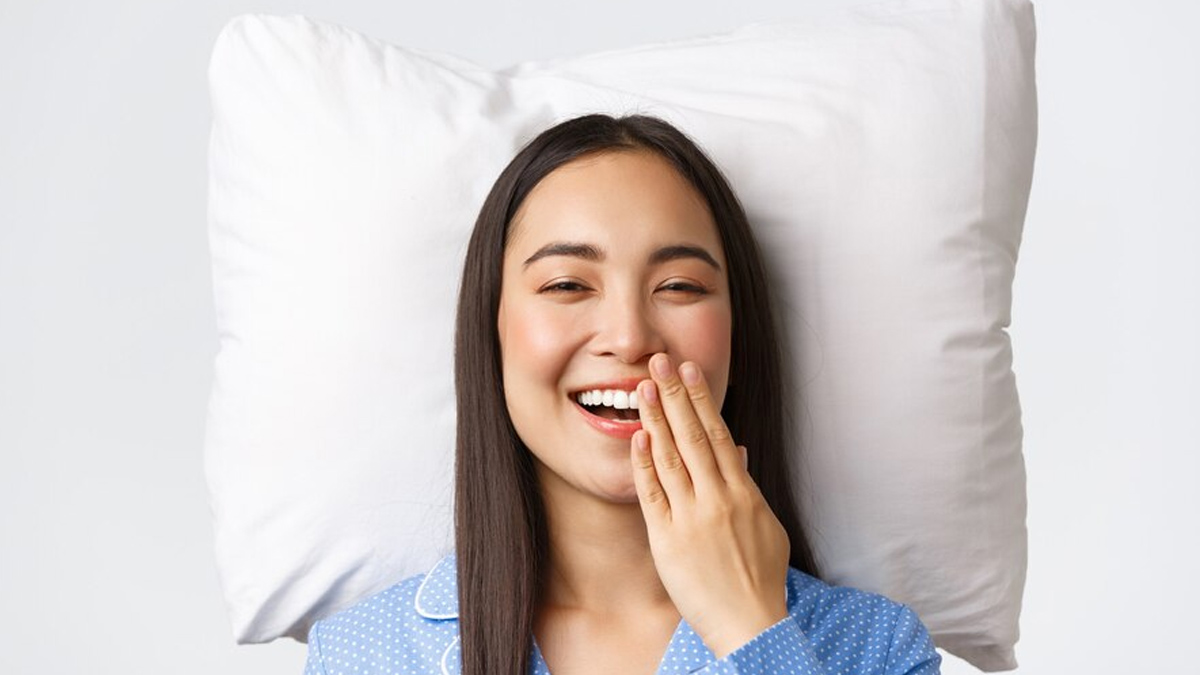
Many people talk in their sleep. It usually involves long speeches, meaningless mumbling, complete gibberish, and sometimes sounds, such as grunts and moans. Sleep talking, or somniloquy, is basically a kind of sleep disorder characterised by talking during sleep without being aware of it.
Table of Content:-
According to the Sleep Foundation, it is common for people to experience at least one episode of sleep talking during their lifetime. While sleep talking is mostly harmless, if left unchecked, it can become persistent and may impact the quality of your sleep and overall health.
Speaking with the OnlyMyHealth team, Dr Balaji B S, Consultant - Neurology and Epileptology, Aster Whitefield Hospital, Bengaluru, shares the common causes that lead to sleep talking, discusses emergency signs, and sheds light on ways it can be managed.
Also Read: Falling Asleep Too Quickly Could Be A Sign Of Sleep Disorder: How To Know For Sure?
What Is Sleep Talking?

Dr Balaji describes sleep talking as a type of sleep disorder that affects many individuals. It is a common occurrence, with research suggesting that it occurs in more than 66% of the population.
The Sleep Foundation defines sleep talking as a type of parasomnia, which refers to abnormal behaviours during sleep.
"Unlike most parasomnias that happen only during specific parts of the sleep cycle, sleep talking can occur during either rapid eye movement (REM) or non-REM sleep," the charity notes.
What Makes You Talk In Sleep?
Many factors can cause or contribute to sleep talking. These include:
- Stressful life events or anxiety
- Sleep disorders, including sleep apnoea, restless legs syndrome, and REM sleep behaviour disorder
- Genetic factors—sleep talking—might run in families.
- History of alcohol or medications
- Temporary illness, such as fever
When To Seek Professional Help?

Dr Balaji says, “Sleep talking becomes concerning only when and if it significantly disrupts sleep quality, affects the sleep of others, or is accompanied by other symptoms, such as sleepwalking, night terrors, or frequent nightmares.”
He adds, “If sleep talking is accompanied by additional problems like excessive daytime sleepiness, difficulty concentrating, or mood disturbances, only then is it best to see a specialist.”
Most instances of sleep talk are short-lived. However, it can also indicate serious health conditions, such as sleep apnoea, epilepsy, dementia, and Parkinson’s disease.
Also Read: How Maintaining A Sleep Schedule Boosts Your Heart Health: Ways To Create One
Measures To Take

To reduce sleep talking, individuals can try the following strategies, as per Dr Balaji:
- Going to bed and waking up at the same time every day
- Practising stress-reduction techniques, such as meditation and deep breathing exercises
- Ensuring that the bedroom is conducive to sleep by keeping it dark, quiet, and cool
- Avoiding caffeine, nicotine, and alcohol close to bedtime
- Addressing underlying sleep disorders by consulting a healthcare professional
- Avoiding the use of certain medications that may be affecting sleep (however, steps should only be taken under the supervision of a medical professional)
- Maintaining a sleep diary to track sleep-talking episodes and identify any patterns or triggers.
Conclusion
Sleep talking is common and usually harmless. However, if the condition gets worse, it is best to consult a sleep specialist, as it could indicate an underlying sleep condition, like sleep apnoea. Additionally, stress, anxiety, alcohol intake, genetic factors, and certain medications can also contribute to the condition. Speaking to a doctor, diagnosing the condition, and getting the necessary treatment can help alleviate the symptoms. Moreover, it is important to stick to healthy sleep hygiene practices that can improve sleep quality.
Also watch this video
How we keep this article up to date:
We work with experts and keep a close eye on the latest in health and wellness. Whenever there is a new research or helpful information, we update our articles with accurate and useful advice.
Current Version